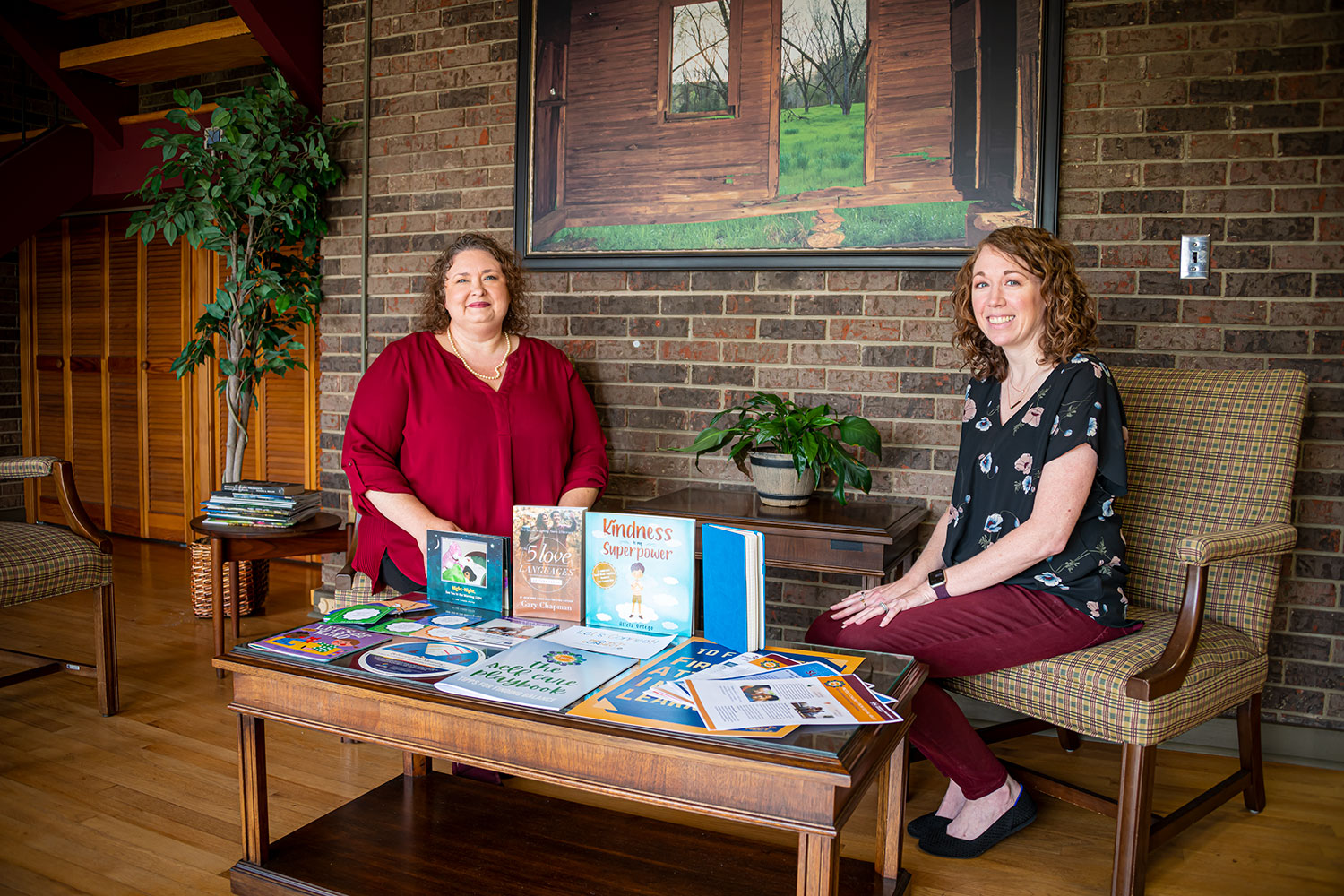The information presented on this page may be dated. It may refer to situations which have changed or people who are no longer affiliated with the university. It is archived as part of Mississippi State University's history.
Two years ago, when the Covid-19 pandemic sent working parents and children home for extended periods of time, families faced the dual challenges of working and learning remotely while living together in close quarters day in and day out. Faculty in the School of Human Sciences, Dr. Lori Elmore-Staton, MAFES scientist and associate professor, and Dr. Alisha Hardman, associate professor and extension specialist, realized that the delivery of parenting education programs would also have to adjust to this new way of life.
The duo had received Temporary Assistance for Needy Families (TANF) funding from the Mississippi Department of Human Services (MDHS) for parenting education centered around social and emotional development. Through the MSU School of Human Sciences, they partnered with MSU Extension and the Mississippi Department of Human Services to create Protect and Connect, a product of the Trauma-Informed Parenting and Professional Strategies (TIPPS) program. This project focuses on training, educating, encouraging, and assisting parents in becoming knowledgeable about the nurturing, financial, growth, and developmental needs of their children. Parenting classes focus on creating a stable home for the child and include topics such as positive discipline strategies, communicating through games and conversations, safety strategies, and creating schedules.
Elmore-Staton and Hardman thought that a subscription box, a popular product with adults, children, and even pets, could serve as a model to deliver these programs directly to TANF-qualified families, many of whom were homebound by the pandemic. To reach these families, Elmore-Staton and her team worked with food pantries to place flyers in bags, partnered with the Discovery Center and the J.L. King Center in Starkville, and recruited families on social media.
"We decided to take this approach because subscription boxes are a hot-ticket item," Elmore-Staton said. "The families would register for and receive a box tailored to the developmental age of the child that would help families provide more safe, stable, and nurturing environments."
A different toolkit series was developed for infants, toddlers/preschoolers, school-age children, and teens. Each kit contains information and items to help parents and children navigate developmental milestones and make stronger connections with each other through reading and games. Each kit also contains publications focused on safety practices tailored to the child's age.
This program is piloting an at-home alternative to live parenting education classes. Mississippi families can sign up on the Protect and Connect website (www.tipps.extension.msstate.edu) and select the age-level kit they would like, and a team member follows up with a phone call to ensure that the kit arrived and to answer questions. The family receives a total of three toolkits, one sent every few weeks. There are several surveys used to evaluate the effectiveness of the program. One of these evaluation tools, the Nurturing, Safe, and Stable Relationships and Environments Inventory (NSSRE), was recently developed by Elmore-Staton and Hardman to assess parent education programs and efforts broadly. This survey is given pre- and post-program completion, to measure any growth that took place in the areas of assessment.
A centerpiece of the school-age and teen toolkits, and a point of pride for Elmore-Staton, is a deck of age-appropriate conversation cards that the Protect and Connect team developed last summer to enrich parent-youth relationships. She noted that recent funding from MDHS has allowed the Protect and Connect team to print and distribute the cards in the kits this year and the feedback has been overwhelmingly positive.
"The cards have been one of the most favorite items in the toolkits. They can spark discussions at the dinner table or in the car and cover topics that parents might not normally discuss with their child," Elmore-Staton said.
Soliciting feedback from parents is a key component of the Protect and Connect program. In addition to the NSSRE, some parents have provided written observations. The team has observed success stories coming from participating families and publishes them with the parents' permission.
For example, a parent of a school-aged child wrote, "I'm thrilled over the conversation cards. My youngest loves the book, and my oldest is excited about the Mad Libs notebook. We did some of the conversation cards per my oldest child's request, and we really enjoyed it! We can't wait to receive future kits; we will be anxiously awaiting them. Thank you for putting this together. I believe it will be beneficial to us."
Although families are now back in the office and the classroom, demand for these kits has not declined.
"Covid initiated the creation of the toolkits, but because we have received such great feedback, we are hoping this can be a new approach to reaching a broader audience with evidence-based resources. We all have busy lives, and scheduling parenting classes can be difficult. We can reach more people with information like this, but we recognize that the information included must be engaging," said Elmore-Staton.
Since January, 680 families have participated in the program, so the team is well underway to their goal of reaching 1,200 families. Moreover, word of the toolkits' success with families has reached teachers, and they have been requesting kits tailored to help them support children's social and developmental needs in the classroom. Elmore-Staton is hopeful that the TIPPS program will receive funding from other sources to offer that service to teachers in the future.
Unfortunately, kids don't come with an instruction manual, but these toolkits may be the next best thing. They clearly meet a fundamental need for promoting positive parenting strategies and improved family communication. While the toolkits began as a socially distant alternative to parenting classes, they have grown to be a promising model for delivering parenting education to families.

